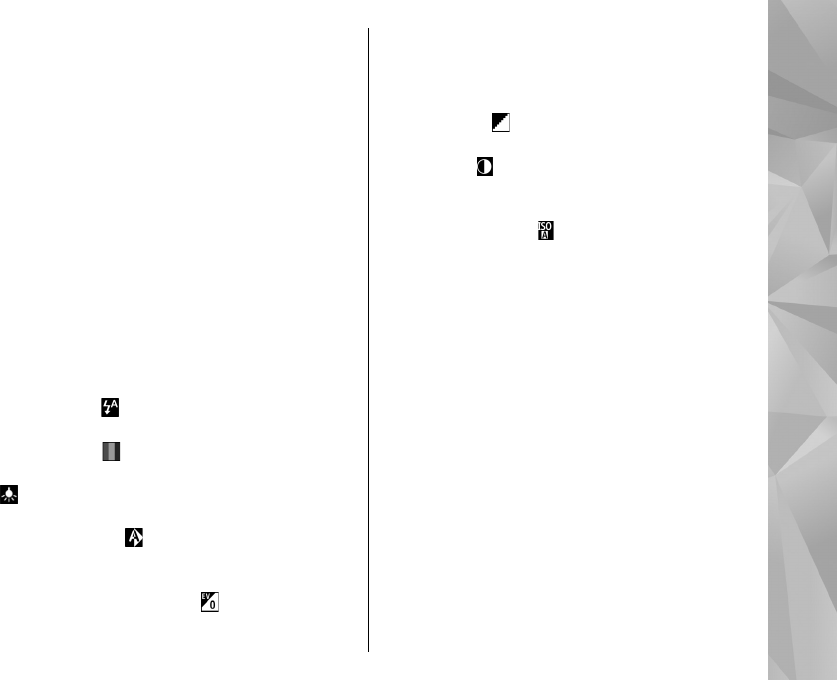
to pause at the digital and extended digital step
point, and Off allows a limited amount of zoom
while retaining the image resolution. Use the
extended zoom only when getting closer to the
subject is more important than the final image
quality. The overall quality of a digitally zoomed
image is always lower than that of an unzoomed
image.
● Capture tone — Set the tone that sounds when
you capture an image.
● Memory in use — Select where to store your
images.
● Restore camera settings — Restore the camera
settings to default values.
Colour and lighting settings
In the active toolbar, select from the following:
● Flash mode (
) (image only) — Select the
desired flash mode.
● Colour tone (
) — Select a colour effect.
● Switch video light on or Switch video light off
— Switch the video light on or off (video mode
only).
● White balance (
) — Select the current
lighting condition. This allows the camera to
reproduce colours more accurately.
● Exposure compensation (
) (image only) — If
you are shooting a dark subject against a very
light background, such as snow, adjust the
exposure to +1 or +2 to compensate for the
background brightness. For light subjects
against a dark background, use -1 or -2.
● Sharpness (
) (image only) — Adjust the
sharpness of the image.
● Contrast (
) (image only) — Adjust the
difference between the lightest and darkest
parts of the image.
● Light sensitivity (
) (image only) — Increase
the light sensitivity in low light conditions to
avoid too dark images.
The screen display changes to match the settings
you make.
The available settings vary depending on the
selected camera.
The setup settings are shooting-mode specific.
Switching between the modes does not reset the
defined settings.
The setup settings return to the default settings
when you close the camera.
If you select a new scene, the colour and lighting
settings are replaced by the selected scene. You can
change the setup settings after selecting a scene if
needed.
43
Camera


















